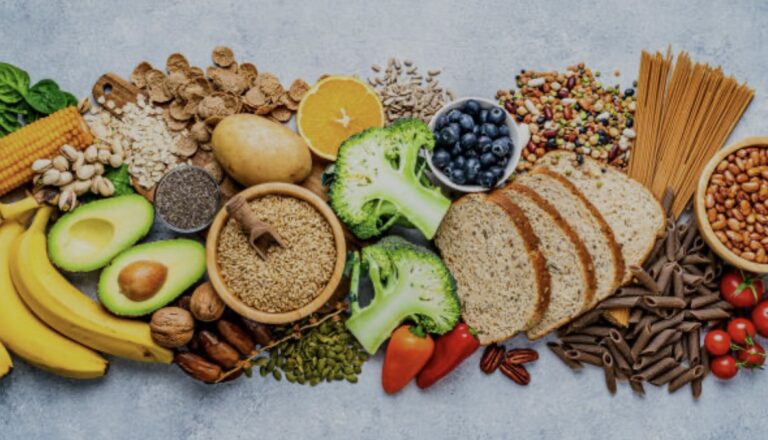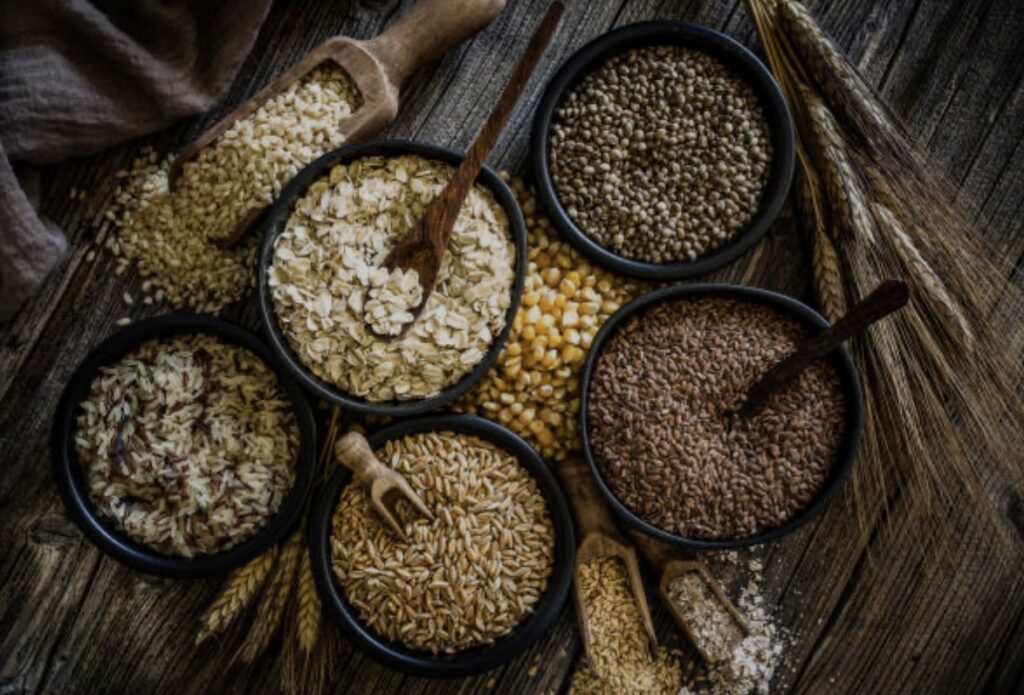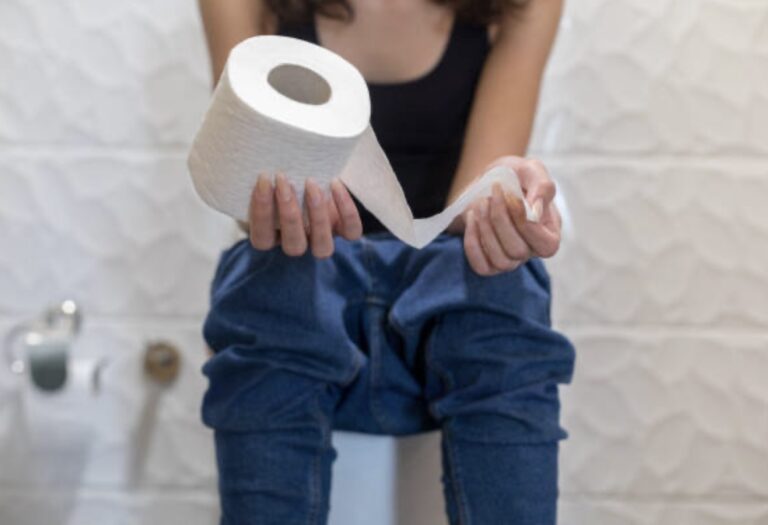Effective Natural Constipation Remedies
Constipation is an ailment that no one likes to talk about yet it is as common as it is inconvenient. For many, it’s a discomfort that comes and goes, but for others, it’s a chronic condition that impacts the quality of life. Recognizing the importance of addressing this issue is the first step toward finding relief. In this regard, natural remedies stand out as gentle yet effective solutions. Having several effective natural constipation remedies in your back pocket is valuable when you come into this dilemma.
Understanding the basics of constipation, the role of diet, lifestyle, and natural supplements will guide us through gentle paths to relief. This article is structured to navigate the myriad ways to ease constipation and invites you to digestive tranquility.
Dietary Adjustments for Relief
High-Fiber Foods: Nature’s Laxative
The cornerstone of combating constipation is increasing your intake of dietary fiber. Acting as nature’s laxative, fiber adds bulk to your stool and softens it, making it easier to pass.
Types of Fiber: Soluble vs. Insoluble
Soluble Fiber: Disperses in water, forming a gel-like substance that helps stool pass smoothly. Found in oats, seeds, and legumes.
Insoluble Fiber: Adds bulk to the stool and is found in whole grains and vegetables.

Top Fiber-Rich Foods to Incorporate
Include a variety of beans, lentils, berries, avocados, and whole grains in your diet. Not only do they help with constipation, but they also come packed with nutrients that boost overall health.
Balancing Intake: How Much Is Enough?
Adults should aim for 25 to 30 grams of fiber per day. However, increase your intake gradually to allow your digestive system to adjust.
Hydration: The Foundation of Digestive Health
The Role of Water in Digestion
Water softens stool, which aids in easier bowel movements. Without enough hydration, constipation is almost guaranteed.
Signs of Adequate Hydration
If you’re drinking enough water, your urine will be light yellow, and you’ll urinate about 6-8 times a day.
Tips for Increasing Your Daily Water Intake
Carry a water bottle with you everywhere, set reminders to drink water, and consume hydrating foods like cucumbers and melons.

Probiotics: Balancing Gut Flora
Understanding Gut Health and Constipation
A healthy gut flora is essential for smooth digestion. An imbalance can lead to constipation.
The Best Natural Sources of Probiotics
Incorporate yogurt, kefir, sauerkraut, and other fermented foods into your diet for a daily dose of probiotics.
Incorporating Probiotics Into Your Diet
Start with small servings of probiotic-rich foods and gradually increase them to allow your digestive system to adjust.

Lifestyle Modifications That Help
Regular Exercise: Keeping Things Moving
How Movement Affects the Bowels
Regular physical activity stimulates the digestive system, keeping the bowels moving regularly.
Recommended Types of Exercise for Constipation
Walking, swimming, and yoga are excellent choices for stimulating digestion.
Creating a Sustainable Exercise Routine
Choose activities you enjoy and schedule them into your week to ensure consistency.

Stress Management: The Gut-Brain Connection
How Stress Affects Digestive Health
Stress can freeze the digestive system, leading to constipation. Managing stress is, therefore, crucial for digestive health.
Techniques for Reducing Stress
Practices like mindfulness, meditation, and deep breathing exercises effectively manage stress levels.
Incorporating Mindfulness and Relaxation Into Your Routine
Dedicate a few minutes each day to relaxation techniques to significantly improve your digestive health.
Healthy Sleeping Habits
The Link Between Sleep and Digestion
Lack of sleep disrupts the body’s natural rhythms, including the digestive system, making constipation more likely.
Tips for Improving Sleep Quality
Maintain a regular sleep schedule, create a restful environment, and limit screen time before bed.
The Impact of Sleep on Bowel Movements
Adequate sleep ensures the smooth functioning of the digestive system, helping to prevent constipation.

Natural Supplements and Herbs
Fiber Supplements: When Food Isn’t Enough
Types of Fiber Supplements
Psyllium husk, methylcellulose, and inulin are popular choices.
How to Use Fiber Supplements Safely
Start with a low dose and gradually increase it, ensuring you drink plenty of water to avoid worsening constipation.
Possible Side Effects and Warnings
Bloating and gas are common initially. Always consult with a healthcare provider before starting any supplement.
Herbal Remedies
Senna: A natural stimulant that increases bowel movements.
Peppermint Oil: Known for easing digestive discomfort.
Aloe Vera: Has natural laxative properties apart from its skin benefits.
Mineral Solutions
Magnesium: Acts as a muscle relaxant, which can help with bowel movements.
Potassium: Vital for muscle function, including those in the digestive tract.
Calcium: While mostly known for its role in bone health, it’s also important for proper muscle function and digestion.

Practical Tips for Preventing Constipation
Daily Routine Adjustments
Maintain a consistent eating and exercise schedule to help regulate your digestive system.
Hygiene and Toilet Habits
Positioning for Easier Bowel Movements: Elevating your feet can align your colon in a position that makes bowel movements easier.
The Debate Over Squatting: Squatting may reduce strain and make bowel movements smoother.
When to See a Doctor
Be attentive to signs that suggest your constipation is symptomatic of a more severe condition. Persistent, painful, or recurrent issues warrant professional advice.
Avoiding Common Constipation Triggers
Dehydration Culprits
Limit intake of alcohol and caffeine as they can dehydrate you, worsening constipation.
Foods to Limit or Avoid
Reducing dairy, processed foods, and high-fat meals can alleviate and prevent constipation.
Medications and Supplements
Some prescriptions and over-the-counter medications can cause or worsen constipation. Consult with your healthcare provider if you suspect your medication is a contributing factor.

The Hidden Dangers of Chronic Constipation: A Health Hazard in Disguise
Let’s be real; talking about what happens in the privacy of our bathrooms isn’t exactly a dinner table topic. However, sidestepping such discussions could be concealing a silent threat lurking within—chronic constipation. Far from being just an occasional annoyance or discomfort, persistent constipation can be a harbinger of dire health complications. So, why is this seemingly mild condition ringing alarm bells among healthcare professionals? Let’s dive deep into the unseen dangers of chronic constipation and why it merits our undivided attention.
The Underestimated Threat
At its core, chronic constipation is the irregular, often painful, passage of stools that plagues an individual for weeks, if not months. While it might be tempting to dismiss it as a mere inconvenience, the repercussions of letting it fester can be severe.
The Compounding Effect
Chronic constipation doesn’t just stand still. It snowballs, exacerbating into more grave conditions such as:
Hemorrhoids: The straining to pass hard stools can lead to swollen veins in your rectum, causing discomfort and even bleeding.
Anal Fissures: Tiny tears around the anus resulting from the same strain can be excruciatingly painful and are prone to infection.
Fecal Impaction: When stool becomes stuck in the colon, it can lead to a blockage that might require medical intervention to resolve.
Rectal Prolapse: In severe cases, constant straining can cause a segment of the intestinal lining to protrude from the anus—a deeply distressing and serious condition.

Systemic Impact
The consequences of chronic constipation extend beyond the confines of the digestive system, affecting the body as a whole:
Mental Health: The discomfort and pain can lead to frustration, anxiety, and even depression, impacting one’s quality of life.
Physical Discomfort: Prolonged constipation can cause bloating, abdominal pain, and a general feeling of malaise that saps energy levels.
Ignoring the Signs: A Risky Gamble
Often, the signs of chronic constipation are brushed aside, attributed to a “bad diet” or “just one of those things.” This nonchalant attitude underestimates the condition’s potential to escalate into life-altering complications. Chronic constipation could also be the smoke signal for more severe underlying illnesses, such as colon cancer or thyroid issues, which can be catastrophic if overlooked.
A Call to Action: Heeding the Warning Signs
Given the stakes involved, being vigilant and proactive about one’s bowel health is non-negotiable. Recognize when your body is signaling a problem and seek professional advice instead of resorting to temporary fixes. Dietary adjustments, regular exercise, and adequate hydration can play pivotal roles in keeping constipation at bay, but they’re no substitute for expert medical intervention when needed.

As we pull back the curtain on this unspoken issue, let’s remember: chronic constipation isn’t merely a discomfort—it’s a health risk that demands our attention. By addressing it head-on, we can avert the cascade of negative outcomes it portends, safeguarding our well-being and maintaining our quality of life. Let this be a wake-up call to not disregard what our bodies are trying to communicate, however uncomfortable the message might be.
Constipation is a common concern, but it doesn’t have to disrupt your life. With dietary adjustments, lifestyle changes, and natural remedies, relief is not only achievable but sustainable. Remember, the key to overcoming constipation lies in patience, consistency, and a willingness to make gentle yet impactful changes to your daily life. And always, consult with a healthcare provider when in doubt, ensuring safe and suitable choices for your health.
Frequently Asked Questions
Begin by assessing and adjusting your diet to include more fiber and water. Simple lifestyle changes like increasing physical activity and managing stress can also make a significant difference.
It varies, but many people notice improvement within a few days of making dietary and lifestyle changes.
While natural remedies are generally safe, excessive intake of fiber or herbal supplements without adequate hydration can sometimes worsen symptoms. Always proceed with moderation and seek professional advice when necessary.
If constipation is accompanied by severe pain, blood in the stool, or persists despite home remedies, it’s crucial to seek medical advice.
Yes, but it’s important to consult with a healthcare provider first to ensure the remedies are appropriate and safe for their specific needs.



1 thought on “Effective Natural Constipation Remedies That Work Quickly”
Two tablespoons of unsweetened applesauce with one heaping teaspoon of chia seeds mixed together consumed daily is a huge help for constipation.